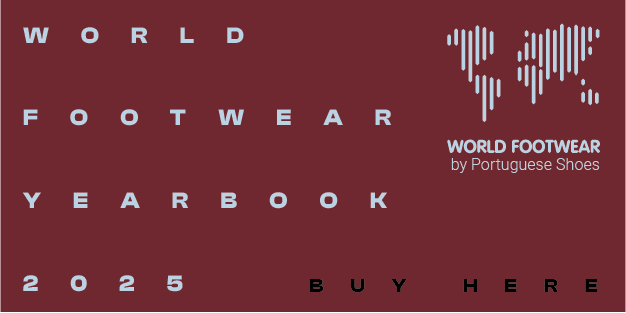TPP is an exciting opportunity for the footwear industry in the US

The words are from Matt Priest, President of the FDRA, on a reflection about the recently announced Trans Pacific Partnership (TPP), a free trade agreement between the US and 11 Pacific countries
The biggest expectation for Mr. Priest is the approval of the TPP by the US Congress. As soon as next year. Now, the American footwear industry will work towards that passage, and the role of the FDRA will be more vital than ever: “When the US Congress was debating whether or not to provide President Obama with Trade Promotion Authority (TPA), FDRA led the fight and organized the industry to send over 6 000 letters to Members of Congress. An even more sustained and impactful effort will be needed to pass TPP and we are vigorously working to implement this more robust strategy as we speak”, Mr. Priest stated.
For the President of the FDRA the 2.7 billion US dollars in duties on footwear imports collected by the US Government last year are more than sufficient reasons to understand the expectations of the footwear industry in seeing this deal in place. Especially, as roughly 450 million US dollars of those duties were paid on shoes made in TPP countries — 99% of which were paid on imports of Vietnamese footwear. As such, by making deep “cuts into such a large duty burden on a product everyone buys, will lead to an impact on the US economy that can only be positive in exponential ways. This is a very exciting opportunity for our industry and our customers”, he added.
In terms of concerns and negative impacts to the US economy, Mr. Priest only claims the worries about delays passing it and implementing it caused by the US presidential politics. The concern is raised as some candidates on both sides of the political aisle have voiced opposition to the TPP. For these, and for any opposing to the implementation of the deal, Mr. Priest says this should be seen as an “effective diplomatic tool and a way in which we express positive American leadership in the world. And let’s not forget, it will also grow our economy!”
For Mr. Priest the benefits of the TPP are clear and undeniable, in terms of tariffs and non-tariffs barriers to imports. The footwear market in the US will be a winner with the implementation of this deal considering the incipient manufacturing industry in the US and the dependence on external producers.
3 Q&A to better understand the impacts of the TPP
There is an expectation that import’s tariffs can be cut to zero. When can we expect a complete elimination of tariffs will be fully implemented in the region?
A vast majority of import tariffs on footwear will be cut to zero on day one. For those shoes that are deemed more politically sensitive, even with such limited and infinitesimal US production, the tariffs will see an up front percentage cut and then full elimination by year 12 of the agreement, assuming those products meet the rule of origin. We will be providing specific and tailored guidance to our members regarding the tariff schedule and rules of origin once we can release those details to the public.
Footwear is frequently pointed as one of the industries which will benefit the most with this deal. In your view what will be the main gains of this deal for the footwear industry in the 12 involved countries? And for the US in particular?
The main benefit we see is the elimination of duties on an item on which the US Government charges exorbitant duties and one in which customers have to buy. We have very limited domestic production of footwear that by no means justifies such a regressive policy on our consumers. This agreement will go a long way in rectifying this misguided policy at a time when Vietnam is growing in importance as a supplier of footwear to the US market.
There is also an expectation around topics such intellectual property, environment and labour pratices. What expectations do you have around TPP in these topics?
These are all important topics around any trade negotiation and help codify many of the standards US companies have helped establish in countries all over the world — that protection of intellectual property, the environment around us and the basic rights of workers globally are worthy and honorable initiatives that need priority in any global trade negotiation. We have seen a strong desire on behalf of our trading partners to raise their standards in order to take advantage of such a robust and forward-thinking agreement. These won’t always be easy reforms but they are reforms all 12 nations have listed as a priority. In many ways, TPP will help accelerate our progress in each of these areas.
For the President of the FDRA the 2.7 billion US dollars in duties on footwear imports collected by the US Government last year are more than sufficient reasons to understand the expectations of the footwear industry in seeing this deal in place. Especially, as roughly 450 million US dollars of those duties were paid on shoes made in TPP countries — 99% of which were paid on imports of Vietnamese footwear. As such, by making deep “cuts into such a large duty burden on a product everyone buys, will lead to an impact on the US economy that can only be positive in exponential ways. This is a very exciting opportunity for our industry and our customers”, he added.
In terms of concerns and negative impacts to the US economy, Mr. Priest only claims the worries about delays passing it and implementing it caused by the US presidential politics. The concern is raised as some candidates on both sides of the political aisle have voiced opposition to the TPP. For these, and for any opposing to the implementation of the deal, Mr. Priest says this should be seen as an “effective diplomatic tool and a way in which we express positive American leadership in the world. And let’s not forget, it will also grow our economy!”
For Mr. Priest the benefits of the TPP are clear and undeniable, in terms of tariffs and non-tariffs barriers to imports. The footwear market in the US will be a winner with the implementation of this deal considering the incipient manufacturing industry in the US and the dependence on external producers.
3 Q&A to better understand the impacts of the TPP
There is an expectation that import’s tariffs can be cut to zero. When can we expect a complete elimination of tariffs will be fully implemented in the region?
A vast majority of import tariffs on footwear will be cut to zero on day one. For those shoes that are deemed more politically sensitive, even with such limited and infinitesimal US production, the tariffs will see an up front percentage cut and then full elimination by year 12 of the agreement, assuming those products meet the rule of origin. We will be providing specific and tailored guidance to our members regarding the tariff schedule and rules of origin once we can release those details to the public.
Footwear is frequently pointed as one of the industries which will benefit the most with this deal. In your view what will be the main gains of this deal for the footwear industry in the 12 involved countries? And for the US in particular?
The main benefit we see is the elimination of duties on an item on which the US Government charges exorbitant duties and one in which customers have to buy. We have very limited domestic production of footwear that by no means justifies such a regressive policy on our consumers. This agreement will go a long way in rectifying this misguided policy at a time when Vietnam is growing in importance as a supplier of footwear to the US market.
There is also an expectation around topics such intellectual property, environment and labour pratices. What expectations do you have around TPP in these topics?
These are all important topics around any trade negotiation and help codify many of the standards US companies have helped establish in countries all over the world — that protection of intellectual property, the environment around us and the basic rights of workers globally are worthy and honorable initiatives that need priority in any global trade negotiation. We have seen a strong desire on behalf of our trading partners to raise their standards in order to take advantage of such a robust and forward-thinking agreement. These won’t always be easy reforms but they are reforms all 12 nations have listed as a priority. In many ways, TPP will help accelerate our progress in each of these areas.











